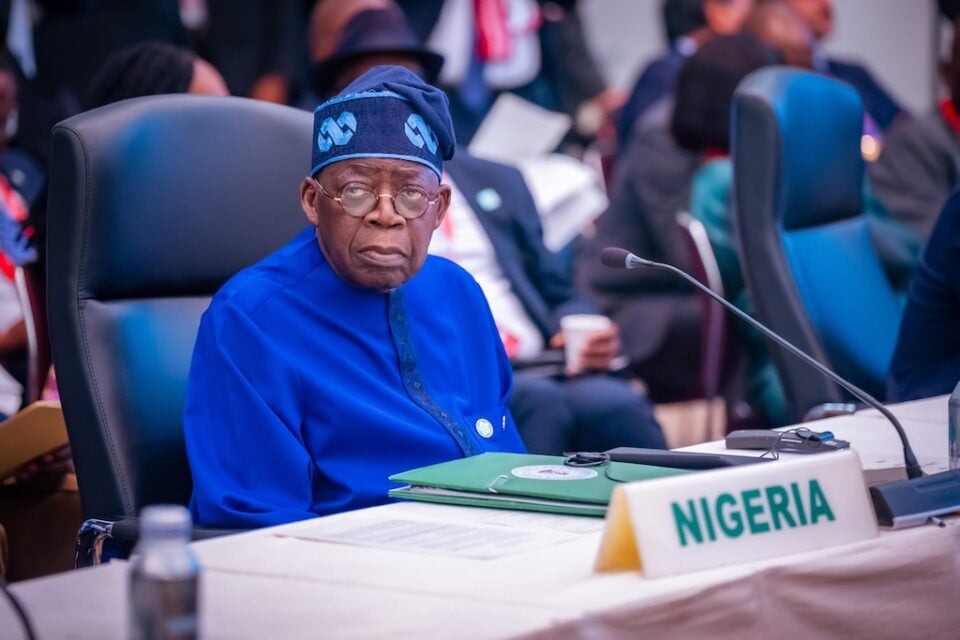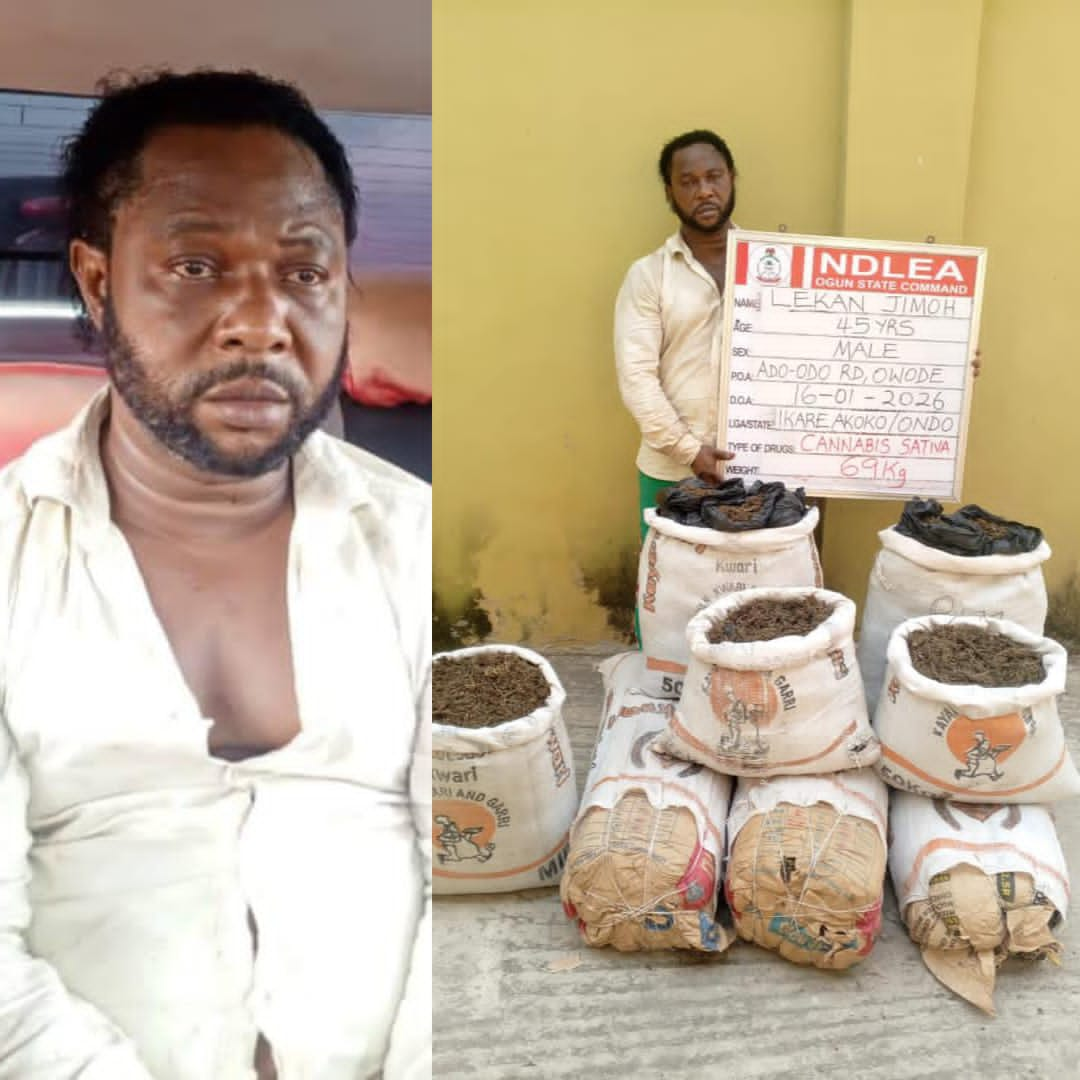🌿 Ruzu Non-Alcoholic Herbal Bitters
Ruzu Non-Alcoholic Herbal Bitters is a natural health supplement specially formulated to:
- ✅ Promote general wellness
- ✅ Detoxify the body
- ✅ Support the treatment of various ailments
Made from a powerful blend of 100% organic and medicinal herbs, Ruzu is completely alcohol-free, making it ideal for:
- 👪 All age groups
- 🌱 Health-conscious individuals
- 🌿 Anyone seeking non-alcoholic herbal remedies
Whether you're looking to boost your vitality, cleanse your system, or support healing the natural way, Ruzu Bitters offers a trusted herbal solution.
According to the most recent World Bank estimate, approximately 139 million Nigerians are living in poverty. The Presidency has criticized the report, calling the number “unrealistic, exaggerated, and detached from Nigeria’s actual economic conditions.”
In a statement sent on Thursday on his official 𝕏 Twitter, Sunday Dare, President Bola Tinubu’s Special Adviser on Media and Public Communication, stated that the data must be appropriately contextualized within global poverty measuring frameworks before they can be regarded as fact.
Nigeria enjoys its collaboration with the World Bank and its contributions to policy research, but it is important to put the reported amount in the right context. Dare remarked, “It is not realistic.”
According to the Presidency, the World Bank’s assessment may not accurately reflect the number of Nigerians living below the poverty line because it was based on the global poverty level of $2.15 per person per day, which was set in 2017 using the Purchasing Power Parity (PPP) methodology.
According to Dare, “care must be taken not to take the World Bank’s figures as an exact, real-time headcount.”
In terms of PPP, the estimate is based on the global poverty line, which was set at $2.15 per person per day in 2017. That amount, when converted nominally, is around $64.5 per month, or close to ₦100,000 at the current exchange rate, which is significantly more than Nigeria’s new minimum salary of ₦70,000. The measure is obviously an intellectual construct rather than a true representation of local income reality.
When such standards are applied to Nigeria, he claims, they fail to take into account the nation’s distinct economic structure, cost disparities, and the subsistence-based livelihoods that support millions of households in rural and semi-urban areas.
According to the Presidency, PPP-based poverty assessments ignore current economic dynamics and the informal sector activities that constitute the foundation of Nigeria’s real economy because they mainly rely on historical consumption data—Nigeria’s most recent significant household survey was conducted in 2018–2019.
Using historical consumption data, the PPP methodology for assessing poverty frequently ignores the informal and subsistence economies that support millions of households. Therefore, the government does not consider the figure to be an empirical depiction of conditions in 2025, but rather a modelled worldwide estimate. Nigeria’s current trajectory is one of recovery and inclusive transformation, which is what really counts,” the statement said.
The emphasis should be on progress rather than projections.
The Federal Government sees the World Bank’s figure as a chance to show further improvement rather than as a condemnation, Dare insisted.
Through reforms and focused social interventions, he observed that Nigeria’s economy was now stabilizing and exhibiting indications of recovery, despite previous shocks.
The direction of change, rather than a fixed number, is what really counts. The Nigerian economy is currently undergoing inclusive reform and revival. “For decades, productivity and inclusive growth have been impeded by structural distortions, which the Tinubu administration is addressing,” he stated.
FG Highlights Reform Achievements and Anti-Poverty Initiatives
President Tinubu’s Renewed Hope Agenda includes a number of ongoing initiatives that the Presidency described to combat poverty and lessen the effects of economic reforms on the populace.
Listed initiatives include:
The Conditional Cash Transfer Program was extended to 15 million families across the country by utilizing a National Social Register that has been digitally validated. More than ₦297 billion has been distributed to low-income and vulnerable families since 2023.
In order to provide livelihoods, micro-infrastructure, and vital social services at the local level, the Renewed Hope Ward Development Program aims to serve all 8,809 electoral wards.
National Social Investment Programs (NSIP): Enhanced programs created to preserve jobs, support small businesses, and keep kids in school, including N-Power, the Home-Grown School Feeding Program, and GEEP microloans (TraderMoni, MarketMoni, FarmerMoni).
Strategies for Improving Food Security: Subsidized grain and fertilizer distribution, partnerships for agricultural mechanization, and the resuscitation of strategic food reserves are all measures to reduce inflationary pressures on the cost of staple foods.
In order to lower living expenses and create jobs, the Renewed Hope Infrastructure Fund finances important housing, transportation, and energy projects.
National Credit Guarantee Company: Using risk-sharing agreements with commercial banks, the company is increasing small business, female, and young entrepreneur access to affordable credit.
Dare claimed that these actions were already having quantifiable macroeconomic effects when paired with budgetary restraint and exchange rate adjustments.
“Reforms Are Hard But Essential” The Office of President
The declaration also emphasized that although changes like the elimination of fuel subsidies, the unification of exchange rates, and the reallocation of funds to productive sectors were difficult, they were “necessary to fix deep-rooted inefficiencies” that had hampered national production for many years.
“This administration is actively correcting long-standing structural distortions, such as over-reliance on imports, productivity constraints, and regional inequality, which must be understood in the World Bank’s assessment,” Dare said.
New growth momentum and macroeconomic stability are already being restored by these policies. These improvements are effective, according to the World Bank itself.
He emphasized that the next priority for the government was to make sure that macroeconomic stability translated into real welfare benefits for the populace, such as reasonably priced food, good jobs, and dependable infrastructure.
Dare reaffirmed the government’s belief in its economic course and stated that the Tinubu administration was committed to making sure that regular Nigerians benefited from growth.
“Nigeria rejects statistical interpretations that are overly dramatic and disconnected from local realities,” he said.
“Building a resilient, inclusive economy where growth directly correlates to improving living standards, increasing opportunity, and empowering households are top priorities for the government. These reforms are required. The path is correct. Nigeria’s foundation is being securely established for a more equitable and successful country.
World Bank Country Director for Nigeria, Mathew Verghis, stated that poverty levels were still high in spite of recent fiscal and monetary changes during the October 2025 Nigeria Development Update (NDU) event in Abuja.
He claimed that many households are still dealing with declining purchasing power in spite of these stabilization gains. “We project that 139 million Nigerians will be among the poor in 2025.”
Verghis praised the Federal Government’s initiatives to eliminate gasoline subsidies and unify the currency rate as courageous and fundamental, but cautioned that the benefits of these changes may be lost if they are not used to improve living conditions.
“Macroeconomic stability in Nigeria must be translated into higher living standards for its citizens. Going from policy to people is the current challenge, Verghis stated.
In its report “From Policy to People: Bringing the Reform Gains Home,” the World Bank emphasized that Nigeria should prioritize cutting inflation, increasing the effectiveness of public spending, and growing social safety programs for its most vulnerable inhabitants.














